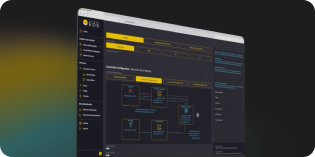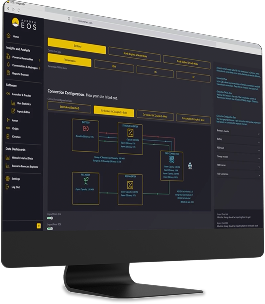- Application window:Closed
- Commencing in:September 2025
- Programme Duration: Ongoing

What we look for
If you're a final-year undergraduate, postgraduate, or recent graduate with a strong academic record, you could be a great fit for our Oxford Graduate Modelling Programme. We value candidates with a relevant Master’s degree or PhD, a strong understanding of energy markets, and proficiency in Python programming. Knowledge of statistical and mathematical optimisation techniques is also highly desirable. We’re looking for candidates who demonstrate:
Exceptional problem-solving skills and strong analytical ability
The ability to collect, analyse, and interpret complex quantitative data
A collaborative mindset and strong interpersonal skills
Proficiency in at least one programming language (e.g. Python, R, Matlab, C++, Java)
A genuine motivation to drive the global energy transition
Fluency in English (required)
What to expect on your journey
Training in our modelling methods and energy markets
Working with our teams
Gain hands-on experience across our Research and Advisory teams through structured rotations, developing market expertise, analytical skills, and real-world impact in the global energy sector.
Advisory
Our Advisory team delivers tailored analysis to help clients make high-stakes decisions on investments, policy, and strategy. Working closely with global stakeholders, you'll contribute to projects across technologies and markets, supporting major energy transactions and the transition to a low-carbon future.
Research
The Research team produces market-leading insights for over 800 global clients. You’ll contribute to rigorous forecasting and analysis across topics like renewables, battery storage, and hydrogen, supporting decision-makers from governments, utilities, and investors navigating complex, fast-changing energy systems.
Software Solutions
This team empowers clients to use Aurora’s tools effectively. From feature development to client onboarding, they bridge software, strategy, and support to help users unlock real value.
About Oxford
The Application Process
Our application process is designed to understand your competencies, strengths, and motivations for the programme, but it’s also an opportunity for you to learn more about us. There will be ample time for your questions, and our hiring team will ensure you receive all relevant information about the assessment process in advance.





Application tips
Whether building your application, honing your interview skills, or preparing for case study questions, these tips will help you showcase your strengths and align your application with what we are looking for.
Explore the sections below to ensure you’re fully prepared, and take the first step towards a successful application for Aurora’s Graduate Programmes.



Get to know Aurora
Explore upcoming career events, learn what makes Aurora unique, and find answers to the questions that matter to you.





































